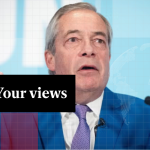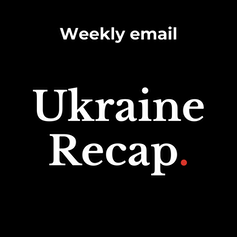Three European leaders took the train today to Kyiv to meet Volodymyr Zelensky. The visit has been billed as a “symbolic joint trip to show their support for Ukraine”, but there will have been pressure on the Ukrainian president to indicate what it might take on the part of him and his people to meaningfully engage in peace negotiations with Russia.
We’re seeing increased reports that many in Europe think Ukraine should be ready to concede at least some territory if it would bring the war to a rapid end. But recent research conducted in Ukraine by a team which included Kristin M Bakke of University College London with two US colleagues found that 82% of respondents believed Ukraine should not under any circumstances concede territory.
Drilling down into that, they found some interesting variations in the views depending on both gender (women were less likely to insist on taking back all occupied territory) and location of respondents (people in the west of Ukraine were more insistent on winning back their territory than in the east where the fighting is concentrated at the moment).
Read more:
Ukraine: most people refuse to compromise on territory, but willingness to make peace depends on their war experiences – new survey
It looks like an intractable problem. Vladimir Putin appears to be channelling Peter the Great in his thirst for conquest, with the Ukrainian people overwhelmingly opposed to allowing him to slake that thirst with their blood. So, how might negotiations play out? Neophytos Loizides, a professor of international conflict analysis at the University of Kent, has offered five ideas, based on situations where negotiations have resolved often bitter conflicts, that could help kickstart peace talks.
Read more:
Ukraine war: five issues that could help kickstart peace talks as European leaders head to Kyiv
One of Ukraine’s firmest friends through all of this has been Poland, which is playing host to 1.42 million refugees, according to the UN, and has offered steadfast support throughout the conflict. But it was not always so cordial between the two countries. For centuries Ukrainians and Poles have been at loggerheads – mainly over territorial and identity issues. Christoph Mick, professor of modern European history at Warwick University, walks us through this chequered past looks at the issues that have bought the two former enemies together.
Read more:
Ukraine and Poland: why the countries fell out in the past, and are now closely allied
This is our weekly recap of expert analysis of the Ukraine conflict.
The Conversation, a not-for-profit news group, works with a wide range of academics across its global network to produce evidence-based analysis. Get these recaps in your inbox every Thursday. Subscribe here.
On the battlefield
The conflict grinds on and the butcher’s bill continues to mount, with all the tragedy and heartache that goes with it. Last week there were reports of what the Russians are calling a terror attack and the Ukrainians are calling resistance activity, which is a familiar difference of opinion that seems to crop up whenever a powerful nation attacks and occupies a less powerful one.
Russian sources reported recently that a cafe frequented by occupation forces in the city of Kherson in southern Ukraine had been the target of a bombing in which four people were injured. The Russians have been keen to frame this as terrorism, but – as Chris Morris, an expert in policing from the University of Portsmouth – points out here, it’s very much in line with what you might expect from an occupied city in the midst of such a violent war of occupation.
Given how prepared so many civilians were to fight against the invading army, Russia must expect an increasingly potent resistance movement, even in regions of Ukraine which were already occupied but where significant portions of the population are determined to see the Russian military leave.
Read more:
Ukraine war: why popular resistance is a big problem for Russia
When the word “terrorists” is bandied about by the Russian propaganda machine, you can be sure the words “war criminals” won’t be far behind. Which is how many of the prisoners of war from battles like the bitterly contested fight to take the port city of Mariupol are being classified. But it must be said that both sides are thought to be breaking the rules when it comes to their treatment of prisoners of war.
As Christpher Bluth, an expert in international relations from Bradford University – who has written regularly for us on the war – notes, Ukraine has paraded Russian prisoners on its media, in some cases deliberately humiliating them, which is against the Geneva Conventions. The Russian military has made the same mistakes. Both sides are signed up to the rules of war and the mistreatment of POWs is always unacceptable.
Read more:
Ukraine conflict: how both sides are breaking the law on prisoners of war
Away from the frontline
We’ve often written here about Russian propaganda – and, indeed it seems that Putin has a pretty firm grip on his country’s media, with few dissenting voices still in the country after most opposition newspapers and media organisations were either shut down or fled the country. But the growing popularity of Telegram, an independent social media app, means a growing number of people inside Russia can see different viewpoints – including the BBC news in Russian.
Ekaterina Romanova, who is studying for her PhD in mass communications at the University of Florida, writes that people who are finding ways of supplementing the one-note diet of pro-Putin news on state TV with independent voices from around the world, are more likely to oppose the war.
Read more:
Russians with diverse media diet more likely to oppose Ukraine war
On the financial markets, meanwhile, the strength of the Russian rouble has been raising eyebrows among those who thought that the fierce sanctions imposed by western countries was wrecking the economy and undermining the value of the currency. Kirill Shakhnov, an economist from the University of Surrey, explains why the rouble has defied expectations and is stronger now than before the invasion – and, ironically, this may in large part be to do with the effect of the sanctions.
Read more:
Russia’s rouble is now stronger than before the war – western sanctions are partly to blame
Finally, the conflict in Ukraine is seeing facial recognition technology being used in warfare for the first time. Ukraine’s Ministry of Defence has been using Clearview AI facial recognition software since March 2022 to build a case for war crimes and identify the dead – both Russian and Ukrainian. As Felipe Romero Moreno – a legal scholar from the University of Hertfordshire – writes, the software can help Ukrainian officials identify dead soldiers more efficiently than fingerprints, and works even if a soldier’s face is damaged. But this comes with its own ethical questions, as Moreno notes.
Ukraine Recap is available as a weekly email newsletter. Click here to get our recaps directly in your inbox.
![]()











